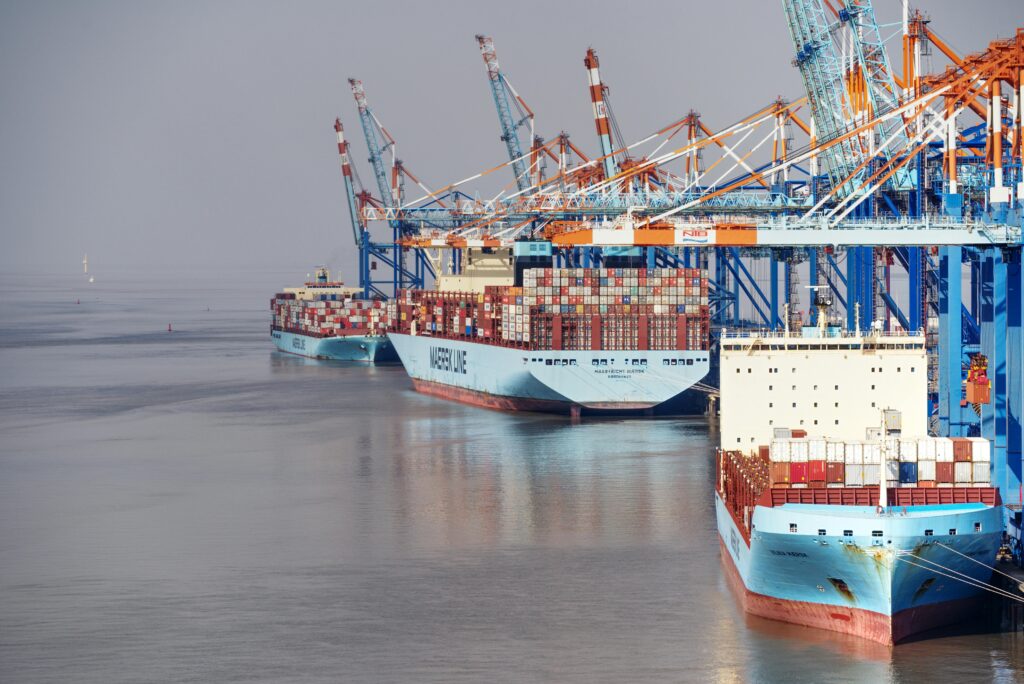Cold Chain Logistics Safeguarding Temperature-Sensitive Cargo
Learn how cold chain logistics serves as a shield for temperature-sensitive cargo, guaranteeing its quality and safety during transportation.
The need for temperature-controlled environments has become a critical aspect of safeguarding the integrity and quality of temperature-sensitive cargo. From pharmaceuticals and healthcare products to perishable foods and delicate biological materials, maintaining precise temperature ranges throughout the supply chain is paramount. Cold chain logistics has emerged as a specialised discipline, leveraging cutting-edge technology and stringent processes to ensure the safe and timely delivery of these valuable and sensitive goods.

Importance of Temperature Control
Temperature-sensitive cargo encompasses a wide range of products, each with unique requirements for maintaining specific temperature ranges. Even slight deviations from the prescribed conditions can compromise the quality, potency, and safety of these goods, potentially rendering them unusable or even dangerous.
In the healthcare sector, maintaining the cold chain is crucial for preserving the efficacy of life-saving medications, vaccines, and biological therapies. Improper temperature exposure can degrade these products, reducing their effectiveness or even rendering them toxic. Similarly, in the food industry, proper temperature control is essential for ensuring the freshness, taste, and safety of perishable items, preventing spoilage and minimising the risk of foodborne illnesses.
Specialised Equipment and Infrastructure
Effective cold chain logistics relies on specialised equipment and infrastructure designed to maintain precise temperature conditions throughout the transportation and storage processes. Refrigerated trucks, insulated containers, and temperature-controlled warehouses are essential components of this intricate system.
Advanced refrigeration units equipped with real-time monitoring and automatic temperature adjustment capabilities ensure that cargo remains within the desired temperature range, even during extended transit times or unexpected delays. Additionally, thermal blankets, phase change materials, and other innovative packaging solutions further contribute to maintaining the desired temperature environment.
Monitoring and Data Logging
In cold chain logistics, continuous monitoring and data logging are critical to ensuring the integrity and traceability of temperature-sensitive cargo. Sophisticated tracking systems, including wireless sensors and data loggers, provide real-time visibility into the temperature conditions of shipments throughout the supply chain.
This detailed data not only allows for immediate corrective action in case of deviations but also provides valuable insights for process improvement and regulatory compliance. By analysing temperature data, logistics providers can identify potential bottlenecks, optimise routes, and implement preventive measures to mitigate temperature excursions.
Regulatory Compliance and Quality Assurance
Cold chain logistics is a highly regulated environment, with stringent standards and guidelines set forth by regulatory bodies and industry associations. Compliance with these regulations is paramount to ensure the safety and efficacy of temperature-sensitive products, particularly in the healthcare and food sectors.
Logistics providers specialising in cold chain operations must adhere to strict quality assurance protocols, including regular equipment calibration, personnel training, and comprehensive documentation. This commitment to compliance not only safeguards the integrity of the cargo but also protects businesses from potential legal liabilities and reputational damage.
Advanced Analytics and Predictive Modelling
The integration of advanced analytics and predictive modelling into cold chain logistics operations has significantly enhanced the ability to anticipate and mitigate potential temperature excursions. By leveraging vast amounts of historical data, machine learning algorithms, and predictive models, logistics providers can identify patterns, forecast demand, and optimise routing and resource allocation.
Predictive modelling can account for various factors, such as weather conditions, traffic patterns, and seasonal fluctuations, enabling proactive decision-making and minimising the risk of temperature deviations. This data-driven approach not only improves operational efficiency but also ensures the consistent delivery of temperature-sensitive cargo in pristine conditions.
Sustainable and Energy-Efficient Solutions
As the UK logistics and freight industry continues to prioritise sustainability and environmental responsibility, cold chain logistics providers are actively exploring and implementing sustainable and energy-efficient solutions. This includes the adoption of alternative refrigerants with lower global warming potential, as well as the integration of renewable energy sources, such as solar panels, to power refrigeration units.
Furthermore, optimised routing and load consolidation strategies can significantly reduce the overall carbon footprint associated with cold chain transportation, minimising fuel consumption and emissions. By embracing sustainable practices, logistics providers can not only contribute to environmental protection but also position themselves as industry leaders in responsible and eco-friendly operations.
Collaboration and Partnerships
Effective cold chain logistics often requires collaboration and strategic partnerships among various stakeholders, including manufacturers, logistics providers, regulatory bodies, and research institutions. By fostering open communication and knowledge-sharing, these partnerships can drive innovation, streamline processes, and ensure the seamless integration of cold chain operations across the supply chain.
Collaborative efforts can lead to the development of new technologies, the establishment of industry best practices, and the implementation of standardised protocols, ultimately enhancing the efficiency and reliability of temperature-controlled logistic services.
Conclusion on Cold Chain Logistics
In the UK logistics and freight market, cold chain logistics has emerged as a critical component, safeguarding the integrity and quality of temperature-sensitive cargo. From state-of-the-art equipment and monitoring systems to stringent regulatory compliance and advanced analytics, this specialised discipline ensures the safe and timely delivery of life-saving pharmaceuticals, delicate biologics, and perishable foods.
As the demand for temperature-controlled transportation continues to rise, logistics providers must remain at the forefront of innovation, embracing cutting-edge technologies, sustainable practices, and strategic collaborations. By doing so, they can not only meet the stringent requirements of temperature-sensitive cargo but also position themselves as trusted partners in the ever-changing logistics landscape.
Ultimately, the success of cold chain logistics lies in its ability to seamlessly integrate advanced technologies, robust processes, and specialised expertise, ensuring that temperature-sensitive cargo reaches its destination in pristine condition, safeguarding the well-being of consumers and upholding the highest standards of quality and safety.
Contact Us
We are here when you need us. Get in contact to see what we can do for you
Contact Us